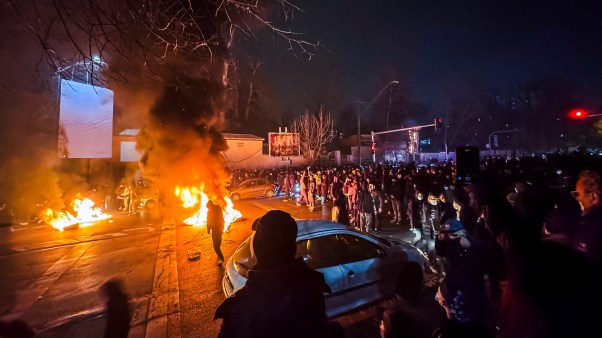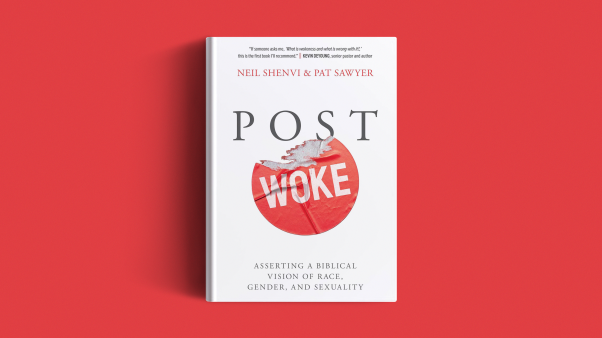"It's a bunch of garbage," mumbled Edna, the oldest—and most out-spoken—member of my small group. I sometimes wondered why she bothered to attend this outreach course on basic Christianity.
I'd been trained as a leader to sit directly across from the most difficult person. Tonight Edna fit the bill. She stared defiantly at me, challenging me to a mental duel. I prayed silently for help—which was not unusual. I had never facilitated such a diverse group. It took all I had to keep everyone on topic without tempers flaring.
The video we watched that night was on finding God's will. I asked the group how they felt about God guiding their lives. Discussion followed, but Edna was not participating. That was unlike her.
"What do you think? I asked her.
"I don't believe any of it," she said, shaking her head in disgust. "It's a bunch of garbage. That guy (on the video) is just a salesman trying to make money." Everyone stared at her. I swallowed and smiled and quickly asked someone else what they thought. Opinions flew back and forth, but Edna stood her ground. She finally got up and left.
Anger is usually the outward manifestation of inward hurt. I was trained to watch for those times when a group member responds with anger—as Edna had. I was sure a nerve had been hit, and I saw Edna's outburst as a cry for help. I prayed for the Holy Spirit to help me respond effectively. I knew I needed to reach out to Edna.
I called her when I got home. I asked if she would like to have lunch with me the next day. I was relieved when she agreed to meet me at Ricky's. The next morning a nervous Edna faced me across a booth. For the next two hours, she told me about her difficult childhood in Holland, the hard war years, the loss of three babies.
Anger is usually the outward manifestation of inward hurt. I knew I needed to reach out.
"This is the third time I've taken the course," she whispered, "and I still haven't found peace."
I dug through my purse and pulled out two identical booklets. "Would you mind if we read something together?"
She looked around the restaurant as if I had offered her drugs. "Can we go somewhere else? I don't want the waitresses to think you're trying to sell me something."
I paid the bill, and we moved to my car. We then read together about God's love and his plan for each person to have a fulfilling life through a personal relationship with Jesus Christ. When we came to "all have sinned," I thought Edna would make a fast exit. Instead, she looked up at me with tears streaming down her face. "If I tell you something, will you promise not to tell anyone?" I promised.
She hesitated and cleared her throat. I squeezed her hand. She then related an incident that had occurred during the war years when she was a young woman. She was certain God had taken her babies to punish her.
"You're the first person I've ever told," she concluded. We read more about God's love and forgiveness. I then suggested we pray together. When we finished, Edna's face glowed. "It's gone! It's like this huge thing has been lifted off of me!"
I cried all the way home. I was so grateful to God for prompting me to recognize a divine moment—the moment when his Spirit was at work in Edna.
Over the years as a small group leader, I've tried to be sensitive to the work of the Holy Spirit in individual members. As leaders, we need to continually be on the lookout as people enter into these moments. The best way I know how is to look for those responses that tell you God is indeed present. They can range anywhere from an angry eruption to a quiet request for prayer. It's up to us to identify these divine moments and to respond when we encounter them.
Cathy Mogus is a contributor to SmallGroups.com.
Copyright © 2014 by the author or Christianity Today/Leadership Journal. Click here for reprint information on Leadership Journal.








